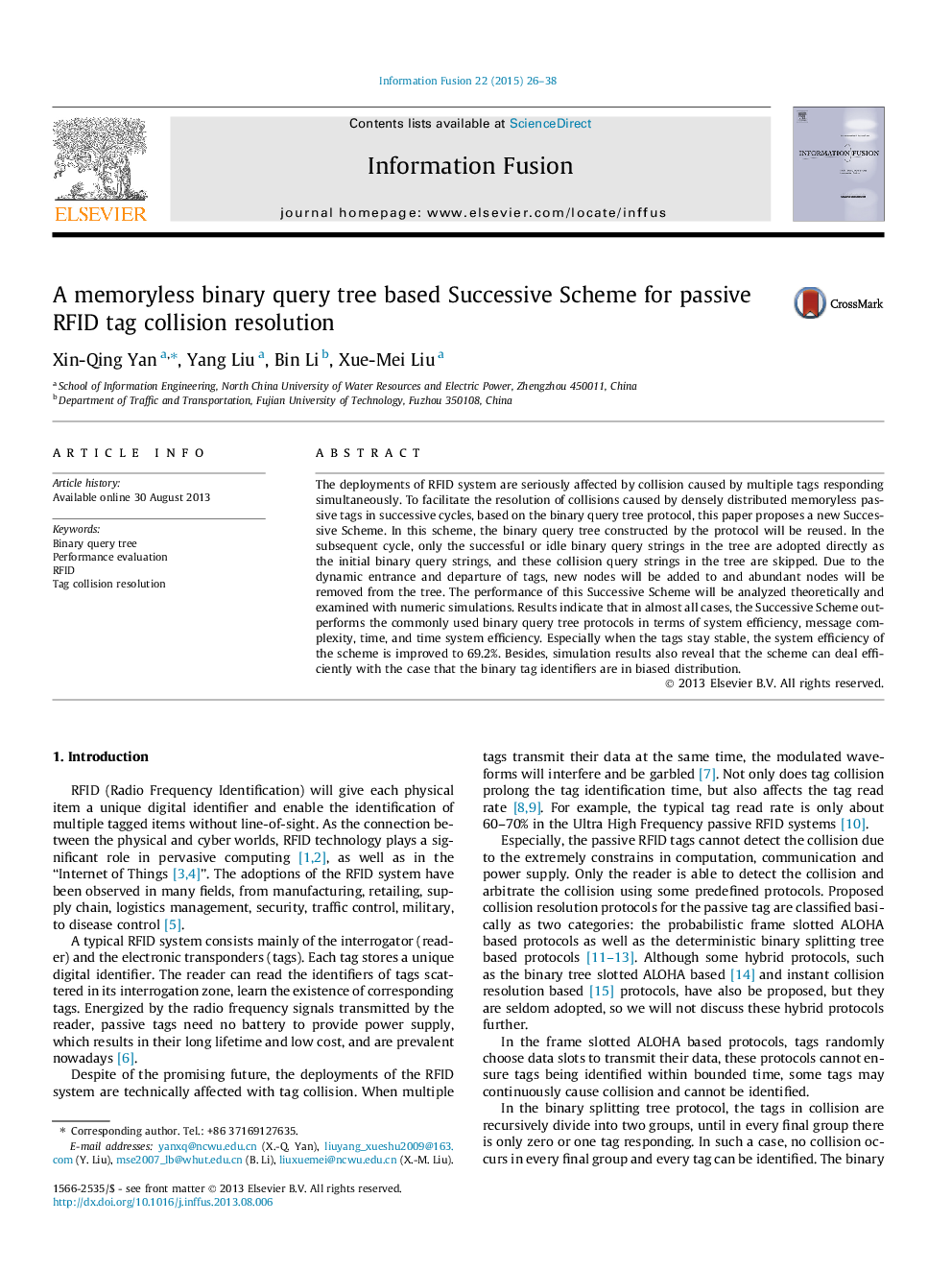| Article ID | Journal | Published Year | Pages | File Type |
|---|---|---|---|---|
| 528090 | Information Fusion | 2015 | 13 Pages |
The deployments of RFID system are seriously affected by collision caused by multiple tags responding simultaneously. To facilitate the resolution of collisions caused by densely distributed memoryless passive tags in successive cycles, based on the binary query tree protocol, this paper proposes a new Successive Scheme. In this scheme, the binary query tree constructed by the protocol will be reused. In the subsequent cycle, only the successful or idle binary query strings in the tree are adopted directly as the initial binary query strings, and these collision query strings in the tree are skipped. Due to the dynamic entrance and departure of tags, new nodes will be added to and abundant nodes will be removed from the tree. The performance of this Successive Scheme will be analyzed theoretically and examined with numeric simulations. Results indicate that in almost all cases, the Successive Scheme outperforms the commonly used binary query tree protocols in terms of system efficiency, message complexity, time, and time system efficiency. Especially when the tags stay stable, the system efficiency of the scheme is improved to 69.2%. Besides, simulation results also reveal that the scheme can deal efficiently with the case that the binary tag identifiers are in biased distribution.
